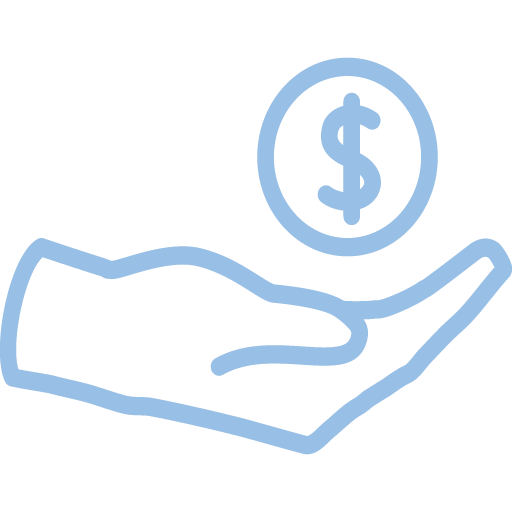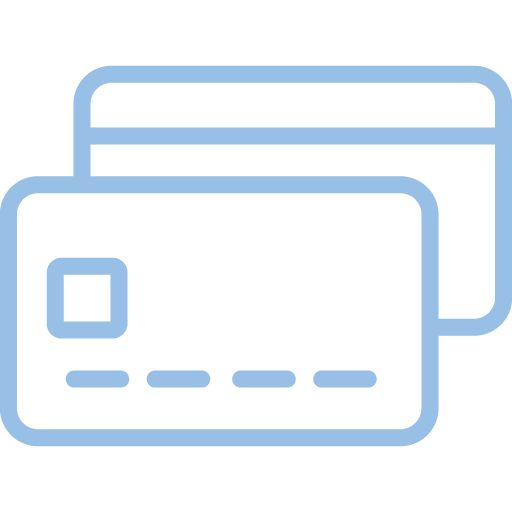While not written in stone, there is a general rule when it comes to taking out consumer debt, such as a mortgage loan: the better your credit history, the better the loan terms and rates you’ll be offered. However, a new federal rule from the Biden administration will change that in an unprecedented way.
What the New Rule Does
In recent years, the Federal Housing Finance Administration (FHFA) — the entity responsible for monitoring and oversight of Fannie Mae and Freddie Mac — has made it clear that housing affordability for Americans is a primary goal. The current White House administration seems to be taking that goal to heart, enacting a surprise federal rule that effectively uses home mortgage borrowers with good credit to subsidize borrowers with lower credit scores.
According to the new FHFA federal rule, good credit borrowers will pay more fees than before on their home mortgage loans. At the same time, borrowers with lower credit scores (and lower down payments) will pay notably less, even if they have a lower down payment amount.
The goal of the program is to provide equitable housing solutions for a wider pool of borrowers. In practice, though, it leaves many high FICO homebuyers wondering why years of efforts are being penalized.
The rule is set to go into effect on May 1, 2023, though the FHFA and its Office of Fair Lending Oversight (OFLO) have gotten their share of pushback since news of the rule spread.
How the New Rule Works
According to a new report from the Washington Post, the federal rule will affect buyers by changing each mortgage’s loan-level price adjustment, or LLPA. These adjustments are front-end fees imposed on new mortgage loans according to specific borrower factors, including credit score, debt-to-income ratio (DTI), and down payment amount.
For new mortgage borrowers with a FICO credit score of 680 or higher (a Good rating, according to MyFico), LLPAs will increase substantially when the rule goes into effect. For example, a borrower with a 740 FICO score and an 18% down payment would be subject to an LLPA of 0.25% prior to May 1; after that date, though, this same buyer would be subject to a 1.00% fee instead.
Conversely, a borrower with a credit score of just 615 and a 4% down payment would pay an LLPA fee of 3.5% today. After May 1, that same buyer with that same down payment would only pay a fee of 1.75%
The Old Way of Underwriting Home Mortgage Loans
So, why does credit score matter when buying a home anyway?
Up until now, home mortgage loans have been underwritten with a few borrower specifics in mind. These factors allow a lender to vet a potential buyer and determine A) whether they are likely to repay the loan as promised, B) whether the lender wants to offer a loan to the borrower, and C) how much the lender will charge in terms of fees and interest.
These important factors include the borrower’s:
- Credit score
- Credit history
- Debt-to-income ratio
- Home price
- Down payment amount
- Income
The better the credit history, the more creditworthy a borrower is deemed to be. This means that you pose less risk to a lender, as you already have a history of paying your bills on time and fulfilling your financial obligations. As a result, borrowers with higher credit scores are offered lower interest rates, which means a lower-cost loan.
Interest rates and fees are also affected by the borrower’s down payment amount. The more you put down on a home, the less risk the lender is taking on by offering you a mortgage loan. Therefore, borrowers with a larger down payment are typically offered a lower interest rate on their loan and lower upfront loan fees.
This new ruling threatens the traditional underwriting and fee structure system, with many borrowers facing higher fees and costs even if they have a higher credit score and/or a larger down payment amount.
What Good Credit Borrowers Should Expect Moving Forward
According to Sandra Thompson, head of the Federal Housing Finance Agency, these changes will serve to “increase pricing support for purchase borrowers limited by income or by wealth.”
That’s all good and well, and will likely go a long way toward improving housing affordability for borrowers with limited or lower credit histories, or even those with a smaller down payment amount.
But what does it mean for borrowers who have spent years saving up and growing their credit score?
Well, amidst high home values, increased mortgage interest rates, and the effects of recent inflation, many of these borrowers with good credit will find themselves paying more under the new rule. LLPA rates may increase according to the borrower’s credit score and down payment amount, effectively penalizing them for their hard work. Depending on the loan amount and other factors, this could mean paying hundreds or even thousands of extra dollars each year.
What Borrowers Can Do to Offset These Added Fees
While new homebuyers can’t avoid the increased LLPA rates that go into effect on May 1, there are some general rules for keeping your mortgage rates — and therefore, your home buying costs — as low as possible.
- Keep your credit score up. Even with LLPA percentages increasing for good credit borrowers, it still makes sense to maintain a healthy credit score. This is especially important if your credit score rating is already Good or higher, as your LLPA and mortgage interest rates may be less with an Excellent score than with a Good score.
- Put down as much as you can. The lower your loan-to-value ratio (LTV), the lower your LLPA percentage and, often times, your mortgage interest rate. This ratio compares your home’s current market value to the loan amount you request, which is the amount left over after you contribute your down payment. The higher your down payment, the lower your LTV and the lower your rates can be.
- Limit your home’s purchase price. LLPAs are a percentage-based fee, rather than a flat rate. This means you’ll see a higher dollar amount increase on a more expensive home. If you really want to limit your out-of-pocket costs, buy a less expensive home.
- Opt for a shorter mortgage loan term. One factor influencing your home mortgage rate is the loan term choosen, or how long you want to pay off your home. A shorter loan term results in a higher monthly payment, but often a lower interest rate. A longer loan term often means a higher interest rate.
- Shop around for the most competitive mortgage rates. No matter which home you’re buying, which terms you need, or what sort of fees and rules are imposed, you should always shop around before choosing a mortgage lender. Many of the best mortgage lenders allow you to get pre-qualified and see rates, without hurting your credit score. This gives you a rough idea of your home mortgage loan costs, as well as which lenders might best meet your needs.
Bottom Line
Home prices, property taxes, insurance premiums, and mortgage rates have all increased in the last year or two. Many soon-to-be homebuyers already feeling the effects, even before shopping around. This new federal ruling will result in even higher costs for a good number of those buyers, especially if they have good credit or a notable down payment amount.
Currently, there is no way around this new rule, which goes into effect at the beginning of May 2023. However, there are still some ways you can limit your home mortgage costs and find the (affordable) home of your dreams.












